Mercedes EQS vs BYD Seal 6 – Which model is better for everyday use?
Compare performance, boot capacity, efficiency and price at a glance.
Find out which car is the better choice for you – Mercedes EQS or BYD Seal 6?
Costs and Efficiency:
Price and efficiency are key factors when choosing a car – and this is often where the real differences emerge.
BYD Seal 6 has a decisively advantage in terms of price – it starts at 36800 £, while the Mercedes EQS costs 93900 £. That’s a price difference of around 57052 £.
As for range, the Mercedes EQS performs clearly better – achieving up to 816 km, about 716 km more than the BYD Seal 6.
Engine and Performance:
Under the bonnet, it becomes clear which model is tuned for sportiness and which one takes the lead when you hit the accelerator.
When it comes to engine power, the Mercedes EQS has a significantly edge – offering 544 HP compared to 212 HP. That’s roughly 332 HP more horsepower.
In acceleration from 0 to 100 km/h, the Mercedes EQS is clearly quicker – completing the sprint in 4.40 s, while the BYD Seal 6 takes 8.50 s. That’s about 4.10 s faster.
In terms of top speed, the Mercedes EQS performs to a small extent better – reaching 210 km/h, while the BYD Seal 6 tops out at 180 km/h. The difference is around 30 km/h.
Space and Everyday Use:
Beyond pure performance, interior space and usability matter most in daily life. This is where you see which car is more practical and versatile.
Both vehicles offer seating for 5 people.
In curb weight, BYD Seal 6 is clearly lighter – 1710 kg compared to 2545 kg. The difference is around 835 kg.
In terms of boot space, the Mercedes EQS offers slightly more room – 610 L compared to 500 L. That’s a difference of about 110 L.
In maximum load capacity, the Mercedes EQS performs to a small extent better – up to 1770 L, which is about 235 L more than the BYD Seal 6.
When it comes to payload, Mercedes EQS evident takes the win – 565 kg compared to 435 kg. That’s a difference of about 130 kg.
Who wins the race?
The Mercedes EQS proves to be is largely superior and therefore becomes our DriveDuel Champion!
Mercedes EQS is the better all-rounder in this comparison.
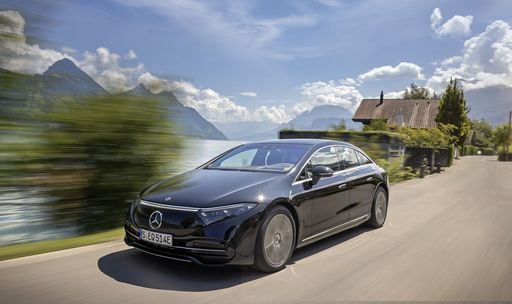
Mercedes EQS
Mercedes EQS
The Mercedes-Benz EQS redefines luxury in the realm of electric vehicles, combining exceptional comfort with cutting-edge technology. Its sleek and aerodynamic design is a testament to both elegance and efficiency, setting new standards for the brand. Inside, the EQS offers a serene and spacious cabin equipped with the latest advancements, ensuring a refined driving experience.
details @ group-media.mercedes-benz.com
@ group-media.mercedes-benz.com
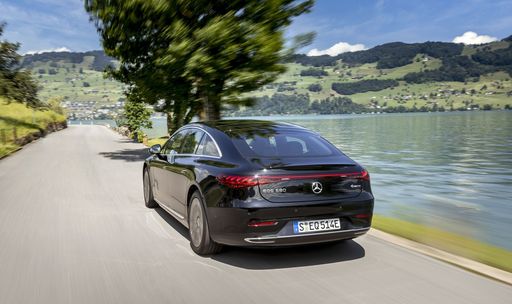 @ group-media.mercedes-benz.com
@ group-media.mercedes-benz.com
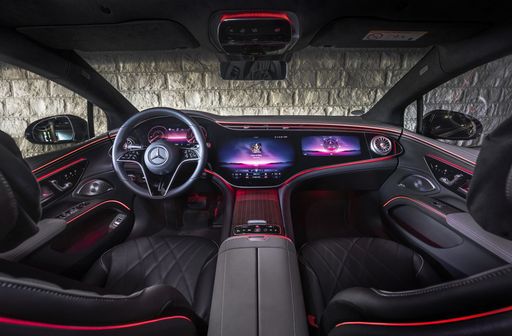 @ group-media.mercedes-benz.com
@ group-media.mercedes-benz.com
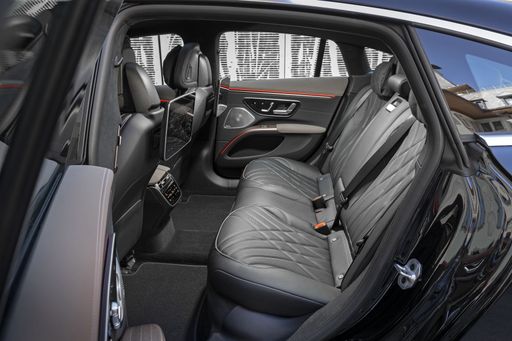 @ group-media.mercedes-benz.com
@ group-media.mercedes-benz.com
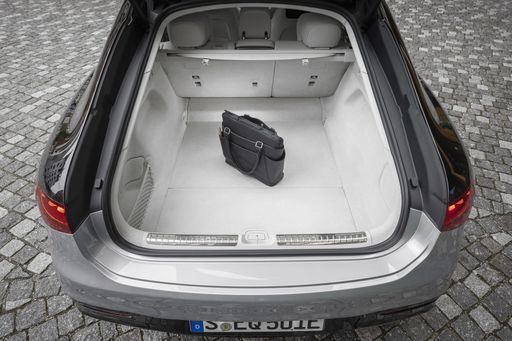 @ group-media.mercedes-benz.com
@ group-media.mercedes-benz.com
BYD Seal 6
The BYD Seal 6 is a captivating electric sedan that captures attention with its sleek design and modern aerodynamics. With a strong focus on sustainability, it offers an impressive electric driving experience, combining efficiency with cutting-edge technology. The Seal 6 stands out in the EV market for its luxurious interior and innovative features, making it a strong contender for drivers looking to embrace the future of transportation.
details

|
|
|
|
|
Costs and Consumption |
|
|---|---|
|
Price
93900 - 123500 £
|
Price
36800 - 42800 £
|
|
Consumption L/100km
-
|
Consumption L/100km
1.7 - 2.6 L
|
|
Consumption kWh/100km
16.5 - 17.2 kWh
|
Consumption kWh/100km
-
|
|
Electric Range
790 - 816 km
|
Electric Range
50 - 100 km
|
|
Battery Capacity
118 kWh
|
Battery Capacity
-
|
|
co2
0 g/km
|
co2
38 - 60 g/km
|
|
Fuel tank capacity
-
|
Fuel tank capacity
65 L
|
Dimensions and Body |
|
|---|---|
|
Body Type
Hatchback
|
Body Type
Estate
|
|
Seats
5
|
Seats
5
|
|
Doors
5
|
Doors
5
|
|
Curb weight
2545 - 2655 kg
|
Curb weight
1710 - 1805 kg
|
|
Trunk capacity
610 L
|
Trunk capacity
500 L
|
|
Length
5223 mm
|
Length
4840 mm
|
|
Width
1926 mm
|
Width
1875 mm
|
|
Height
1512 mm
|
Height
1505 mm
|
|
Max trunk capacity
1770 L
|
Max trunk capacity
1535 L
|
|
Payload
550 - 565 kg
|
Payload
435 kg
|
Engine and Performance |
|
|---|---|
|
Engine Type
Electric
|
Engine Type
Plugin Hybrid
|
|
Transmission
Automatic
|
Transmission
Automatic
|
|
Transmission Detail
Reduction Gearbox
|
Transmission Detail
CVT
|
|
Drive Type
All-Wheel Drive, Rear-Wheel Drive
|
Drive Type
Front-Wheel Drive
|
|
Power HP
360 - 544 HP
|
Power HP
184 - 212 HP
|
|
Acceleration 0-100km/h
4.4 - 6.2 s
|
Acceleration 0-100km/h
8.5 - 8.9 s
|
|
Max Speed
210 km/h
|
Max Speed
180 km/h
|
|
Torque
568 - 858 Nm
|
Torque
-
|
|
Number of Cylinders
-
|
Number of Cylinders
4
|
|
Power kW
265 - 400 kW
|
Power kW
135 - 156 kW
|
|
Engine capacity
-
|
Engine capacity
1498 cm3
|
General |
|
|---|---|
|
Model Year
2024
|
Model Year
2025
|
|
CO2 Efficiency Class
A
|
CO2 Efficiency Class
B
|
|
Brand
Mercedes-Benz
|
Brand
BYD
|
What drivetrain options does the Mercedes EQS have?
Available configurations include All-Wheel Drive or Rear-Wheel Drive.
The prices and data displayed are estimates based on German list prices and may vary by country. This information is not legally binding.
